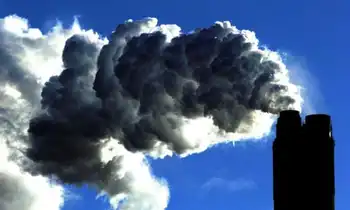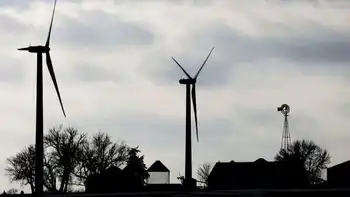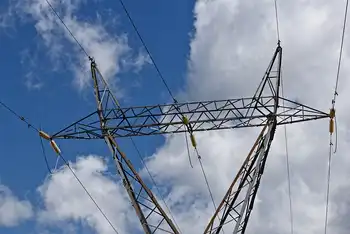Carbon emissions fall as electricity producers move away from coal

NFPA 70e Training - Arc Flash
Our customized live online or in‑person group training can be delivered to your staff at your location.

- Live Online
- 6 hours Instructor-led
- Group Training Available
Global Electricity Emissions Decline highlights a 2% drop as coal power falls, while wind and solar surge. EU and US decarbonize faster; China expands coal and gas, challenging Paris Agreement climate targets.
Key Points
A 2% annual fall in power-sector CO2, led by less coal and rising wind and solar in the EU and US.
✅ Coal generation fell 3% globally despite China growth
✅ EU and US cut coal; wind and solar up 15% worldwide
✅ Gas gains in US; rapid renewables rollout needed for targets
Carbon emissions from the global electricity system fell by 2% last year, the biggest drop in almost 30 years, as countries began to turn their backs on coal-fired power plants.
A new report on the world’s electricity generation revealed the steepest cut in carbon emissions since 1990, with IEA data indicating global totals flatlined in 2019 as the US and the EU turned to cleaner energy sources.
Overall, power from coal plants fell by 3% last year, even as China’s reliance on coal plants climbed for another year to make up half the world’s coal generation for the first time.
Coal generation in the US and Europe has halved since 2007, and last year collapsed by almost a quarter in the EU and by 16% in the US.
The report from climate thinktank Ember, formerly Sandbag, warned that the dent in the world’s coal-fired electricity generation relied on many one-off factors, including milder winters across many countries.
“Progress is being made on reducing coal generation, but nothing like with the urgency needed to limit climate change,” the report said.
Dave Jones, the lead author of the report, said governments must dramatically accelerate the global energy transition so that global coal generation collapses throughout the 2020s.
“To switch from coal into gas is just swapping one fossil fuel for another. The cheapest and quickest way to end coal generation is through a rapid rollout of carbon-free electricity such as wind and solar,” he said.
“But without concerted policymaker efforts to boost wind and solar, we will fail to meet climate targets. China’s growth in coal, and to some extent gas, is alarming but the answers are all there.”
The EU has made the fastest progress towards replacing coal with wind and solar power, while the US has increased its reliance on gas as Wall Street’s energy strategy shifted following its shale boom in recent years.
The report revealed that renewable wind and solar power rose by 15% in 2019 to make up 8% of the world’s electricity.
In the EU, wind and solar power made up almost a fifth of the electricity generated last year, and Europe’s oil majors are turning electric as the bloc stayed ahead of the US which relied on these renewable sources for 11% of its electricity. In China and India, renewable energy made up 8% and 9% of the electricity system, respectively.
To meet the Paris climate goals, the world needs to record a compound growth rate of 15% for wind and solar generation every year – which will require “a colossal effort”, the report warned.
The electricity generation report was published as a separate piece of research claimed that 38 out of 75 of the world’s largest asset managers are stalling on taking action on environmental, social and governance (ESG) issues, and amid investor pressure on utilities to release climate reports.
The latest ranking by Asset Owners Disclosure Project, a scheme managed by the investment campaign group ShareAction, found that the 38 asset managers have weak or nonexistent policy commitments and fail to account for their real-world impacts across their mainstream assets.
The survey also claimed that the investment managers often lack appropriate engagement and escalation processes on climate change, human rights and biodiversity.
Scores were based on a survey of activities in responsible investment governance, climate change, human rights, and biodiversity and ranged between AAA to E. Not a single asset manager was granted an AAA or AA rating, the top two scores available.
Felix Nagrawala, ShareAction analyst, said: “While many in the industry are eager to promote their ESG credentials, our analysis clearly indicates that few of the world’s largest asset managers can lay claim to having a truly sustainable approach across all their investments.”
ShareAction said the world’s six largest asset managers – including BlackRock (rated D), State Street (D) and Vanguard (E) – were among the worst performers.
Vanguard said it was committed to companies making “appropriate disclosures on governance, strategy and performance on relevant ESG risks”. BlackRock and State Street did not respond to a request for comment.











